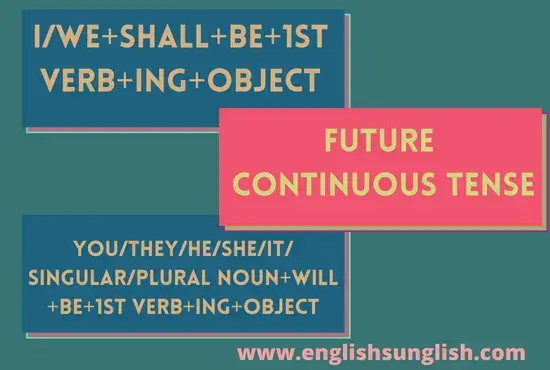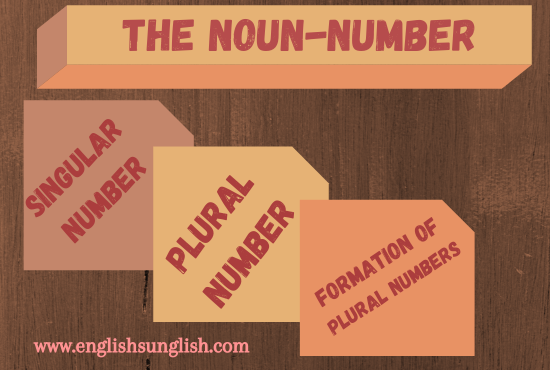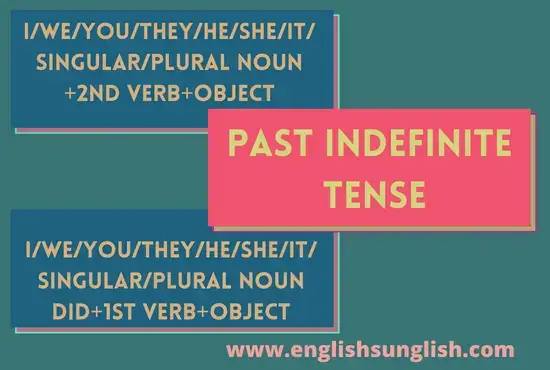Adverbs of Present Perfect Continuous Tense
Present Perfect Continuous Tense is used to indicate such actions/states that are started in the past period, but are still going on in the present period, or have a very strong impact on the present period. So, typically, Present Perfect Continuous Tense is used to indicate either the approximate duration of actions or the point of action. That’s why the following two adverbs are frequently used with Present Perfect Continuous Tense to indicate all the actions of the progression.
“Since” as Adverb in Present Perfect Continuous Tense:
“Since” is used in Present Perfect Continuous Tense to indicate the “point of time”. It means that “since”, is used to represent the exact point of time when the action is started. For example:
- I have been waiting for you since last night.
- You have been going to church since June.
- He has been washing his clothes since morning.
- She has been looking for his lost book since Monday.
- Ali has been sleeping since the afternoon.
- We have been solving this puzzle since yesterday.
- They have been distributing food among the poor since midnight.
- It has been raining since 11’O clock.
“For” as Adverb in Present Perfect Continuous Tense:
“For” is used as an adverb in Present Perfect Continuous Tense to indicate the “period”. It means that “for” is used to represent the duration of an action/state. For example:
- I have been attending his class for five days.
- We have been working in this factory for several years.
- You have been acting as mad for two days.
- They have been receiving free aid from this hospital for more than three weeks.
- Ahmed has been cleaning his room for half an hour.
- He has been going to this church for 5 months.
- She has been performing on stage for 3 days.
- It has been drizzling for 7 hours.
Hint to keep Perfect Use of “Since” and “For”:
As, “Since” is used with Present Perfect Continuous Tense to represent the “point of time”, so, it comes with such “time terms” that are used in the only singular mood. For example:
- Morning, noon, afternoon, evening, night, midnight,
- Yesterday, last evening, last night, last month, last year, last century, 19th century,
- Monday, Tuesday, Wednesday, the 2nd day of the week, 19th of June,
- Childhood, the era of slavery, the middle of ages, Adulthood.
“For” is used with Present Perfect Continuous Tense to represent the “period of an action”, so, it is used with such “time terms”, that can be used in the plural sense. For example:
- Five days, four weeks, three months, two years, two centuries, three decades,
- many seconds, four minutes, three hours,
Common Adverbs of Past Perfect Continuous Tense:
Past Perfect Continuous Tense is used to indicate the long going on the action of the past. So, the following two Adverbs are highly used to express the actions in Past Perfect Continuous Tense:
“Since” as Adverb in Past Perfect Continuous Tense:
“Since” is used in Past Perfect Continuous Tense Sentences, when the purpose is to indicate the “point of time” of action. Usually, “since” is used with singular terms of time. For example:
- I had been waiting for you since last night.
- You had been going to church since June.
- He had been washing his clothes since morning.
- She had been looking for his book since Monday.
- Ali had been sleeping since afternoon.
- We had been solving this puzzle since yesterday.
- They had been distributing food among the poor since midnight.
- It had been raining since 11’O clock.
“For” as Adverb in Past Perfect Continuous Tense:
“For” is used as an adverb in Past Perfect Continuous Tense, when the purpose is to indicate the “period/duration of time”, of action. Usually, “for” is used as an adverb with plural terms of time. For example
- I had been attending his class for five days.
- We had been working in this factory for several years.
- You had been acting as mad for two days.
- They had been receiving free aid from this hospital for more than three weeks.
- Ahmed had been cleaning his room for half an hour.
- He had been going to church for 5 months.
- She had been performing on stage for 3 days.
- It had been drizzling for 7 hours.
Adverbs of Future Perfect Continuous Tense:
Future Perfect Continuous Tense is used to indicate such actions that would be started in past or present time, and are still going on in future time, and have a very strong impact on the future time. So, usually, Future Perfect Continuous Tense is used to tell either about the duration of the actions, or it may be used to denote the point of actions. So, Future Perfect Continuous Tense uses only the following two Adverbs: one for the duration of action, and the other for the point of action.
“Since” as Adverb in Future Perfect Continuous Tense:
“Since” can be used as an Adverb in Future Perfect Continuous Tense to indicate the “point of time”, i.e; indicates the time when a specific action is in its progressing stage. For example:
- I shall have been waiting for them since morning.
- They will have been going to museums to collect important historical knowledge since Monday.
- She will have been washing their clothes since July.
“For” as Adverb in Future Perfect Continuous Tense:
“For” can be used as an Adverb in Future Perfect Continuous Tense to indicate the “time”. It means that when the purpose is to denote the “duration of time”, then “for” is used. For example:
- You will have been receiving free aid from this hospital for more than two weeks.
- He will have been cleaning his room for half an hour.
- We shall have been going for prayer in this church for 5 months.


